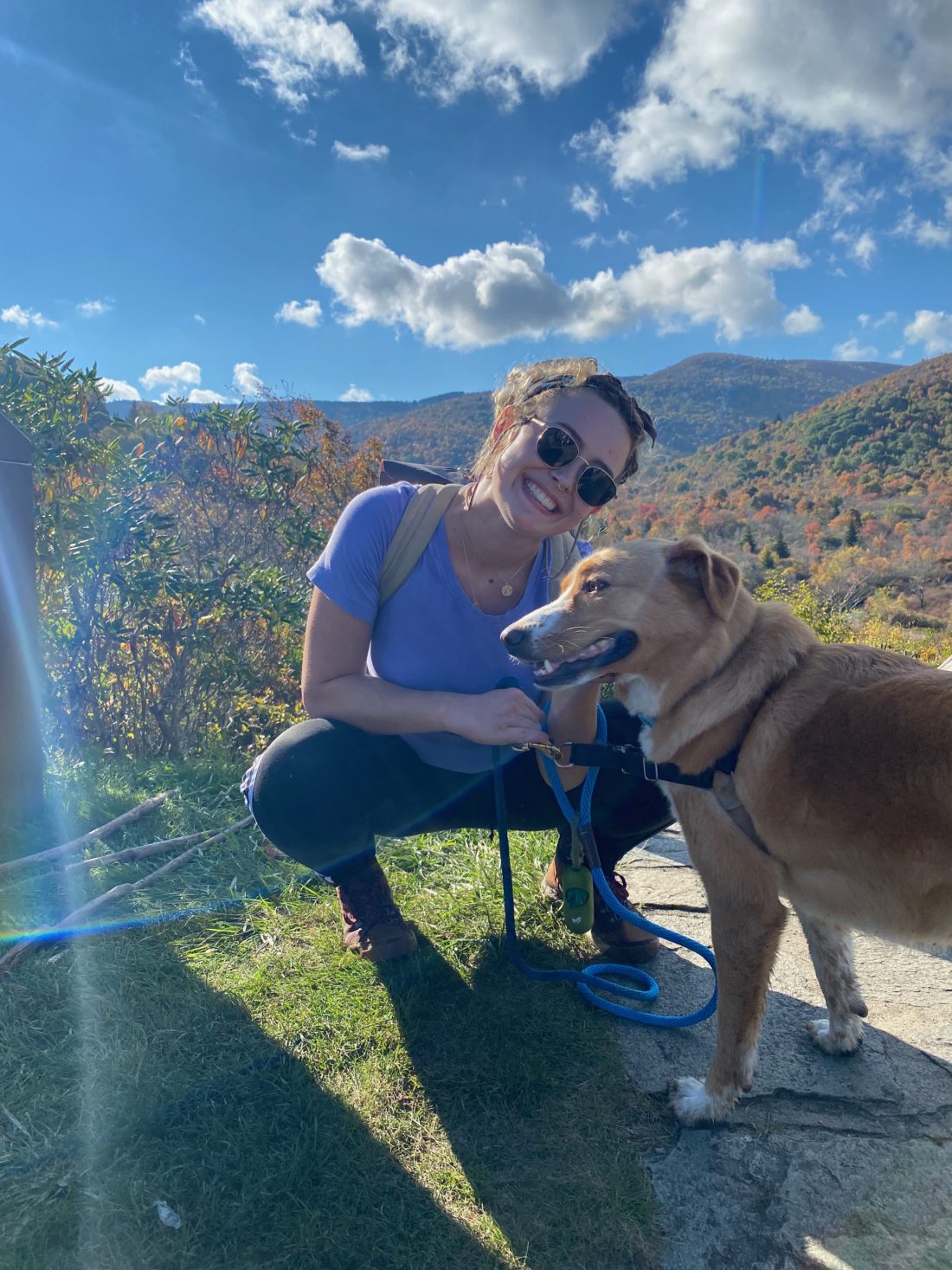Clarissa Donnelly-DeRoven, rural health and Medicaid reporter with North Carolina Health News, says that therapy can be an effective tool for managing mental health. She also encourages the therapy-curious to listen in to real life therapeutic sessions.
What are some techniques you use for maintaining your mental health?
Therapy! I’ve struggled with mental illness my whole life — anxiety, OCD, C-PTSD and some sprinkles of depression. But I didn’t start therapy until I was 21. It was really hard for me to reach out to a therapist. I assumed others had it worse than me and I just needed to toughen up, but it’s been the best choice I’ve ever made. I go once a week for an hour, process what’s going on in my life, cry a bit and then return to the world. I love it. I also take anti-anxiety medicine, and in less clinical practices, I try to do things that make me feel good: embroider, read fiction, stop scrolling and pet my dog.
What is your favorite way to approach your own physical health?
I think a lot of modern life prides us on being out of touch with what our bodies are asking for — we get rewarded for working when we’re sick, for not taking breaks, for being thin even if we’re unhealthy, etc. So, when it comes to my physical health, I’m trying my best to be in touch with what my body wants. For me, this means trying to make exercise and eating vegetables easy parts of my routine. Generally, I go to two exercise classes a week (a spin class and a sort of barre/Pilates fusion situation) and I make green smoothies most afternoons. The routine gives me space to check in with myself and add or take away things as needed.
What is one book, podcast, documentary or article related to mental or physical health that you’d recommend, and why?
I’m going to die on this therapy hill. I recommend the podcast “Where Should We Begin” with Esther Perel. Each episode is a real, one-time couple’s therapy session. You get to know the people in the session — who they are, what they struggle with — and you almost always see parts of yourself reflected back. If you don’t have insurance, can’t afford therapy or just don’t feel ready to start, the podcast is great because it demystifies the therapeutic process. Listening to other people think out and process issues can really help you reframe things in your own life.
Editor’s note: “Health checkup,” is part of our 2022 Wellness issues. These short Q&As feature local residents offering insights about their individual approaches to maintaining their physical and mental health. Hopefully, the wide range of perspectives provide readers with ideas and tips for their own well-being. Be on the lookout for more online and in next week’s Wellness Issue, Part 2.




Before you comment
The comments section is here to provide a platform for civil dialogue on the issues we face together as a local community. Xpress is committed to offering this platform for all voices, but when the tone of the discussion gets nasty or strays off topic, we believe many people choose not to participate. Xpress editors are determined to moderate comments to ensure a constructive interchange is maintained. All comments judged not to be in keeping with the spirit of civil discourse will be removed and repeat violators will be banned. See here for our terms of service. Thank you for being part of this effort to promote respectful discussion.